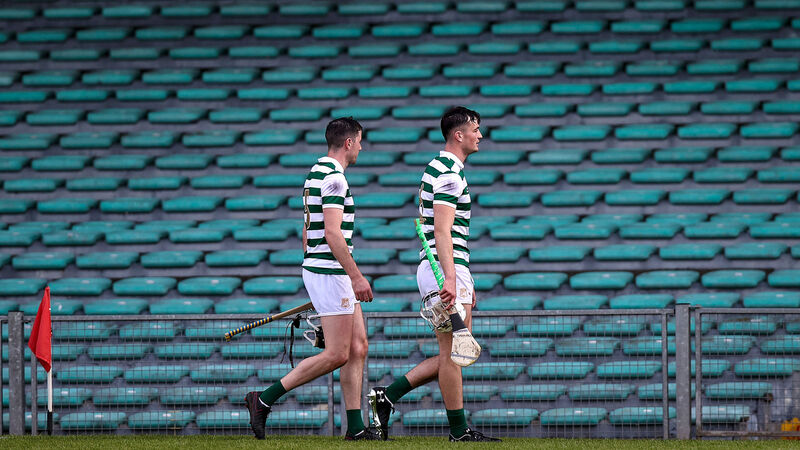Michael Moynihan: Impressions of (half) the Allianz Hurling League

Limerick's Diarmaid Byrnes and Kyle Hayes. Limerick can put out a half-back line of Byrnes, Declan Hannon, and Hayes. As a rough indication of what opponents are dealing with — and specifically opposition goalkeepers who are looking for an option downfield in their vicinity — the three of them are 6-4, 6-2 and 6-5 respectively. Picture: INPHO/Tommy Dickson








